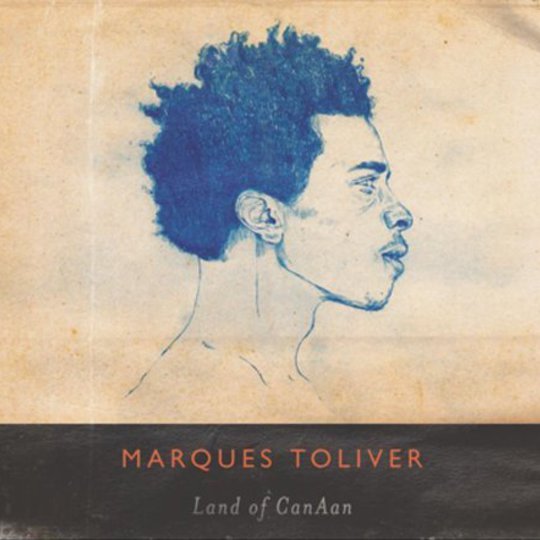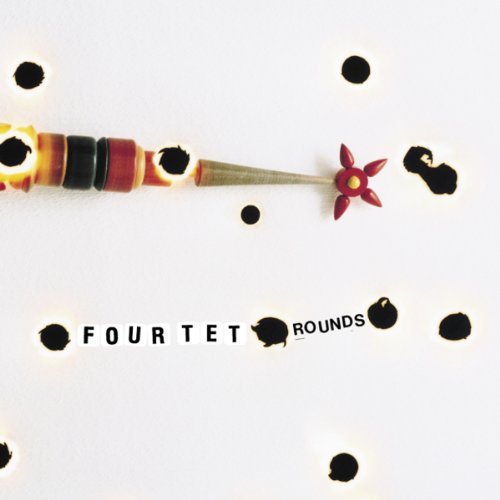Marques Toliver is a PR team’s wet dream. There’s no need to manufacture backstory or conjure artistic mystique, Toliver comes with the sort of biography and CV that would fill the vacancy of 'multi-talented, bohemian renaissance man' in a second, no references required. Nonetheless Adele was only too happy to supply one about her 'favourite new artist' to the producers of Later, leading to Toliver’s captivating solo performance of ‘White Sails’ on the show.
That CV reads something like this: classically trained in the Suzuki method violin, moves to New York where he is spotted busking by TV On the Radio’s Kyp Malone, provides strings parts for Grizzly Bear’s Veckatimest, moves to London where he is spotted busking by Bella Union founder Simon Raymonde, appears in Bat For Lashes’ ‘Laura’ video, is founder and editor of Love Is the Law magazine and… that might not be in order, but somewhere in there he found time to release the EP Butterflies Are Not Free and record debut album Land of CanAan.
Compositionally, Land of CanAan is a multi-layered record sometimes sounding like the work of live band, but just as often sounding like one guy who’s used to playing solo making full use of the possibilities a studio presents. Nonetheless, it’s the violin that is Toliver’s primary weapon of choice much like it is for Owen Pallett or Andrew Bird, and like the former in particular his intention is to use it to weave a distinctive thread through more pop orientated territory, relatively speaking of course. Pallett’s best hooks are typically still shrouded in high-concept and bombastic esotericism. Toliver’s chamber-pop/r’n’b /soul concoction is infinitely more accessible, in fact with his middle-class/middle-age pleasing classical edge and vocals that Radio 2 listeners would find sssoooo soulful, he could well make a play for the mainstream.
This is no snobbish slight, much of what’s good aboutCanAan comes from the successful marriage of Toliver’s classical training with the emotional directness of soul-pop. The baroque violin refrain of ‘Stay’ would sound more at home in the royal courts of seventeenth century Germany, but it lends an empowering puffy chested gravitas to the pleading vocals. The number of string instruments on breathy R’n’B number ‘The Magic Look’ is so delicately handled that you’d barely notice there were so many present; the staccato stabs which set the rhythm, the dense low-range fog of strings suffusing the vocal hook and the reeling refrain on the outro all playing off another one of Toliver’s most emotive vocal performances. Typically records with strings ever-present are overproduced and overstuffed, but on CanAan they are texturally rougher hewn and better for it, particularly on the beautifully poised instrumental centrepiece ‘Repetition’, stark and autumnal, evoking golden foliage and peeling bark.
They are tracks where the strings abandon this textural signature to assimilate more conventionally into the soul-pop sound, rising from low-key Rhodes piano verses to shimmer iridescently on the bold-as-brass chorus of the Stevie Wonder aping ‘If Only’. Unfortunately, along with the ‘River Deep – Mountain High’ referencing ‘Control’ and ‘Something’, ‘If Only’ is too in thrall to the sound of classic soul, managing to imitate its sound, but not its song quality or rousing spirit. Meanwhile, the inane optimism of MOR showtune ‘Weatherman’ is a worryingly dull reminder that Toliver is collaborating with a producer/writer in Eg White who co-wrote Tom Odell’s ‘Hold Me’. Not such illustrious company to keep and on this evidence it might be rubbing off.
These songs highlight, most starkly, another fault with CanAan. In the absence of stylistic and textural juxtapositions as distractions Toliver’s relative lyrical weaknesses are more apparent, not that there’s anything cringe inducingly bad, they’re just generic romantic 'soul' tropes short on wit, panache and catchiness. Not exactly Holland-Dozier-Holland. It detracts from the emotional impact in a manner that leaves Toliver’s pained and pleading vocals sound like those of a competent session singer.
Unfortunately, despite his illustrious CV and unconventional route to the release of his first album, it proves to be a competent, but disappointingly conventional affair.
-
6Neil Ashman's Score






















